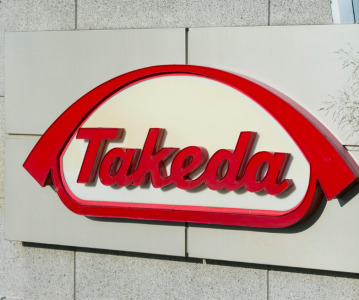Niche start-ups spearheading cell and gene therapy innovation

Smaller companies targeting rare and extremely specific treatment areas are leading the charge in this emerging market.
Niche start-ups are driving innovation in the cell and gene therapy sector, according to a recent market report.
Cell and gene therapies are considered some of the most lucrative opportunity areas for biopharmaceutical developers due to the broad range of genetic diseases and significant unmet need for curative interventions.
Medical science has traced thousands of clinical conditions to a genetic cause, while cancer, which is considered among the leading causes of death worldwide, also has genetic origins.
The report, ‘Investor Series: Opportunities in the Cell and Gene Therapy Market’, found that start-ups targeting niche treatment areas are driving innovation in the sector, while big pharma players are also actively acquiring capabilities related to upcoming advanced therapy medical products (ATMPs). The first gene therapy trial was conducted in 1990 and it took almost three decades for the first of such interventions to enter the market.
Among several companies capitalizing on the market is Swiss multinational Novartis, whose product for the treatment of spinal muscular atrophy (ZOLGENSMA) generated net revenues of approximately $1.35 billion in 2021 alone. Another is US biotech bluebird bio, whose gene therapy was given a stamp of approval this week by US Food and Drug Administration (FDA) advisers. If it goes to market, it will be the third gene therapy to be made available in the United States.
The report notes that R&D activities slowed in the sector during the COVID-19 pandemic - a consequence of complex manufacturing protocols, extensive logistical considerations and supply chain-related concerns. However, the field still witnessed a considerable inflow of capital, with over $21 billion invested into various companies since the start of the pandemic.
There are currently more than 1,200 product candidates in various stages of development and some experts suggest that by 2025, the US FDA may start approving around 10 to 20 cell and gene therapy products annually.
Related News
-
News mRNA therapy for ovarian cancer and muscle wasting
Researchers demonstrate results of a promising mRNA therapy for ovarian cancer and muscle wasting caused by cachexia, a condition associated with various types of cancers and chronic diseases. -
News Pfizer CentreOne Content Refinement Q3 media buy
For 40 years Pfizer CentreOne has been guiding drug projects to success. Here’s how our services make us an altogether different kind of CDMO: -
News Bora Pharmaceuticals expands development and manufacturing capacity with landmark acquisition
Taiwan-based CDMO Bora Pharmaceuticals have acquired niche generic drugs developer TWi Pharmaceuticals, expanding their outsourced development and manufacturing services with two additional manufacturing facilities. -
News Lonza and Touchlight collaboration to bring expanded end-to-end mRNA offerings
Through a collaboration with biotech company Touchlight, Lonza is set to expand their end-to-end offering for mRNA manufacturing with additional DNA raw material sources, including Touchlight’s doggybone DNA. -
News Oxford University presents promising phase II data for malaria vaccine
The malaria vaccine R21/Matrix-M, developed by researchers at Oxford University, has produced encouraging new data for the global effort against the mosquito-borne disease. -
News NextPharma to acquire Norway manufacturing site from Takeda
Biopharmaceutical company Takeda and CDMO NextPharma have announced an acquisition agreement in which Takeda will divest from their Asker, Norway manufacturing site, set to be acquired by NextPharma. -
News Gut instinct: molecular link between COVID-19 and serotonin cells in the gut
New research may provide further evidence of the gut’s role in SARS-CoV-2 infection and disease severity with a molecular link between serotonin-producing cells in the gut and COVID-19 disease severity. -
News Novavax COVID-19 vaccine receives backing from European Medicines Agency
The European Medicines Agency has backed the Nuvaxovid COVID-19 vaccine for adults as a booster shot to other COVID-19 vaccines.
Position your company at the heart of the global Pharma industry with a CPHI Online membership
-
Your products and solutions visible to thousands of visitors within the largest Pharma marketplace
-
Generate high-quality, engaged leads for your business, all year round
-
Promote your business as the industry’s thought-leader by hosting your reports, brochures and videos within your profile
-
Your company’s profile boosted at all participating CPHI events
-
An easy-to-use platform with a detailed dashboard showing your leads and performance


.png)
.png)
.png)

.png)
.png)